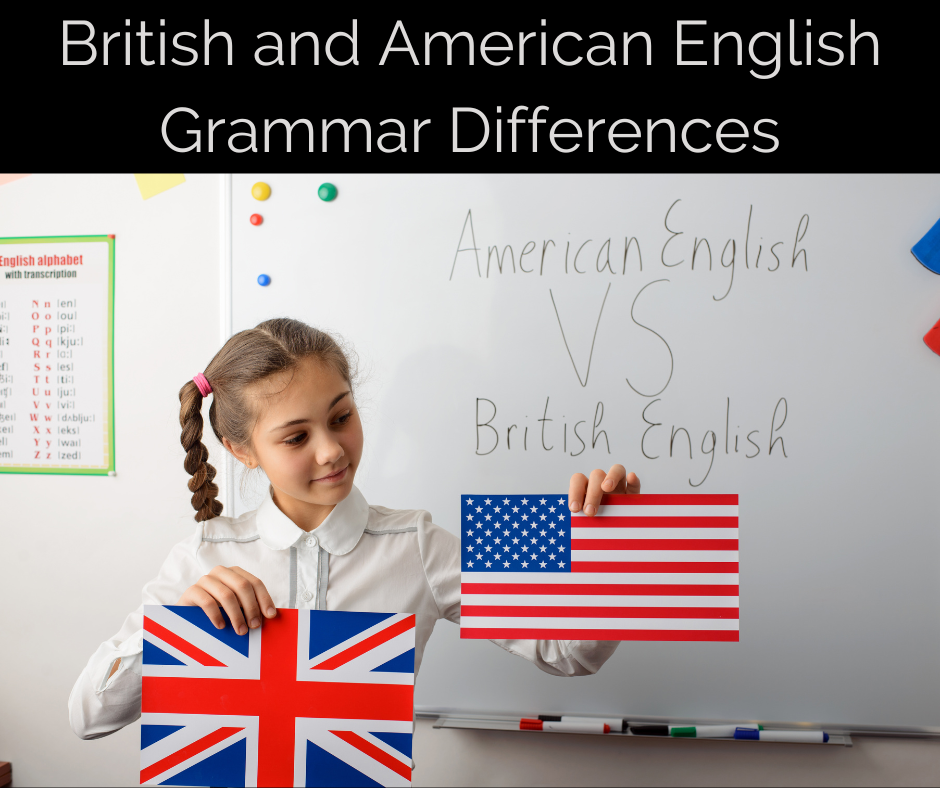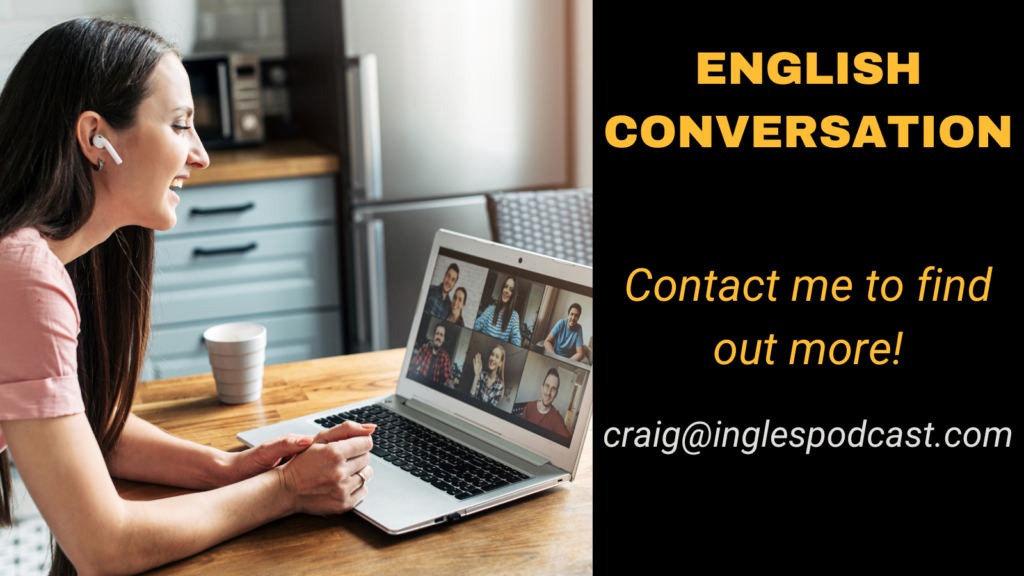
In this podcast, you’ll learn some differences between British English and American English which we hope will remove any confusion you may have when you hear the same thing said different….. or is it, said differently? Are they both correct?
Audio message from Jessica from Brazil
She went to Galway in Ireland and she’s planning to go to San Diego, California.
“XI’ve been there last year.X“
I’ve been to Ireland OR I went there last year.
I am at XeasyX with my English level. At ease with.
Pet peeves: https://inglespodcast.com/461
Manias: https://inglespodcast.com/466
British and American English Grammar Differences
We’ve spoken about pronunciation differences between British and American English: https://inglespodcast.com/81 and vocabulary differences https://inglespodcast.com/288
COLLECTIVE NOUNS
In American English, collective nouns are usually considered singular.
“Reza’s soccer team is losing”
In British English, collective nouns can be either singular or plural, although the plural form is most often used.
“Craig’s football team are/is losing.”
The government plan/plans to change the Education system
My family is/are friendly once you get to know them.
The staff was/were very well trained.
The word “ police” is ALWAYS plural, be it British or American English! The police are determined to tackle crime in this area.

GET
North Americans use ‘gotten’ as the past participle of ‘get’, whereas British people use ‘got’
“Craig’s gotten pretty good at video games.”
“Reza’s got really good at video games.”
I got to go – US (gotta) – or I have to go
I’ve got to go – UK
Possession
I’ve got – mostly UK
I have – mostly US
“Reza’s got a really nice accent.” – UK
“Craig has an awesome accent.” – US
NEEDN’T
‘Needn’t’ is quite common in British English.
In American English, it’s more common to hear ‘don’t need to’.
“You needn’t send me the recording, Reza.”
“You don’t need to send me the recording, Craig.”
SHALL
In British English, people often use Shall I …? to offer to do something and/or Shall we …? to make a suggestion.
It is very unusual for speakers of American English to use shall. They normally use an alternative like Should/Can I …? or Do you want/Would you like …? or How about …? or Will…?
“The internet connection keeps dropping out. Shall I call you back?” – UK
“The internet connection keeps dropping out. How about I call you back?” – US
“Shall we record the podcast at 6 pm?” – UK
“Do you want to record the podcast at 6 pm?” – US
PRESENT PERFECT
In British English, the present perfect tense is used a lot more than in American English.
The present perfect tense is used to describe a past event that has a present result or consequence, but in American English, the past simple tense is often used.
For example:
“Reza feels sick, he’s eaten too much pizza” – British English
“Craig feels sick, he ate too much chocolate” – American English
YET/ALREADY/JUST
“I have already seen that film”- British English
“I already saw that movie” – American English
“I’ve just sent Reza an email.” – British English
“I just sent Reza an email” – American English
GIVING NEWS
“Craig, your mom just called.” – US
“Reza, your mum’s just phoned.” – UK
QUESTIONS
“Has Reza left yet?” – British English
“Did Craig leave yet?” – American English
“She wet the car windscreen before cleaning it” – British English
“She wetted the car windshield before cleaning it” – American English
“All the boxes fitted/fit into the boot” – British English
“All the boxes fit into the trunk” – American English
DATES
British say: My birthday is the 9th of September.
Americans say: My birthday is September 9th.
They’re written differently, too:
UK – 25/5/2022
US – 5/25/2022
Remember this historic event? 9/11.
The terrorist attack on the Twin Towers in New York took place on September 11th, NOT the 9th of November!
ADJECTIVE/ADVERBS
Americans speak different (differently). (sometimes using adjectives as adverbs)
You did good. / I’m good. How are you?
Do it quick.
“Think different” (Apple ad slogan)
SUBJUNCTIVE
The subjunctive does exist in English, though it isn’t often used and most people don’t even know when they’re using it! Interestingly, it is used a little more for formal American English.
We suggest she appeals (INDICATIVE- UK)/ she appeal (SUBJUNCTIVE- US) to the Supreme Court.
The police officer demands that he hands (INDICATIVE- UK)/ hand (SUBJUNCTIVE- US) over the weapon for forensic investigation.
COMPLEX NOUNS
jump rope, dive board, wait list – US
skipping rope, diving board, waiting list – UK
PREPOSITIONS
Reza wrote to me – UK
Craig wrote me – US
Craig spoke to Reza. – UK
Reza spoke with Craig. – US
Monday to Friday. – UK
Monday through (thru) Friday. – US
…and now it’s your turn to practise your English.
Send us a voice message. https://www.speakpipe.com/inglespodcast
Send us an email with a comment or question to [email protected] or [email protected]
This podcast is sponsored, in part, by mansionIngles.com. Visit the online store: https://store.mansioningles.net/
Thank you to all of you who are helping us by supporting this podcast on Patreon. Join our Patreon program for as little as $1.50 per month and you get instant access to recent transcriptions. https://www.patreon.com/inglespodcast
Welcome to our new Patreon supporters who have joined us this month:
Angel Albaladejo Pérez
Thanawat Sakthanakul (Por)
Carlos Esquerdo
Luisa Del Valle Arias
In next week’s episode: Singular and Plural Nouns
If you enjoyed this podcast, please tell your friends.
The music in this podcast is by Pitx. The track is called ‘See You Later’



